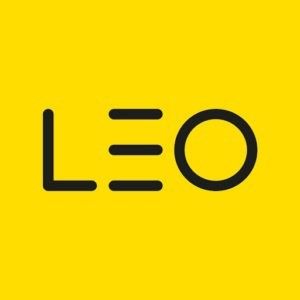Search for...
MOOC Bookmarks
Published Bookmarks
 LEO Learning Among The Top Content Development Companies - eLearning Industry
LEO Learning Among The Top Content Development Companies - eLearning Industry
LEO Learning Among The Top Content Development Companies for 2018, after winning a coveted spot on Training Industry’s list of top content development companies. The is part of Training Industry’s mission to “help buy-side organizations in their search for the right training partner”.


September 25, 2017
by
Ryan Tracey
A study of over 100,000 online learners finds that learning is a skill in itself that involves being prepared to take a risk, engaging with peers and having an independent streak.


September 23, 2017
by
Ryan Tracey
Donald H Taylor’s recently updated blog on MOOCs inspired me to write about what we’re doing with MOOCs in the Diplomatic Academy.
 CONSTRUCTIVE CRITICISM OF COURSERA
CONSTRUCTIVE CRITICISM OF COURSERA
Well it’s taken me over 3 and a half years, but I’ve finally completed another MOOC... this was "e-Learning Ecologies: Innovative Approaches to Teaching and Learning for the Digital Age by the University of Illinois on the Coursera platform.
 Teachers, The Focus Of Curtin’s New MOOC - eLearning Industry
Teachers, The Focus Of Curtin’s New MOOC - eLearning Industry
Curtin University’s latest Massive Online Open Course (MOOC) titled Analytics for the Classroom Teacher, provides an introduction to the emerging field of teaching and learning analytics from the perspective of a classroom teacher.
 New MOOC: Analytics for the Classroom Teacher - eLearning Industry
New MOOC: Analytics for the Classroom Teacher - eLearning Industry
The MOOC Analytics for the Classroom Teacher introduces you to the field of learning analytics from the perspective of a teacher. Starting on October, 24th.
 MOOCs in Workplace Learning - Part 5: Skills Learners Need Today
MOOCs in Workplace Learning - Part 5: Skills Learners Need Today
While the title of the post specifies MOOCs, the skills and mindsets I have explored in the post are, IMHO, required by all to survive and thrive in the digital and connected world. And participating in MOOCs could well be one of the ways to inculcate and hone the skills. I have been writing about MOOCs in the context of workplace learning from different perspectives for some time now.
 MOOCs in Workplace Learning - Part 4: Role in Corporate Universities
MOOCs in Workplace Learning - Part 4: Role in Corporate Universities
This post, as the title says, is about Corporate Universities (CU) and the role of MOOCs therein. My intention was to set the context for why I feel CUs are set to make a comeback.
 MOOCs in Workplace Learning - Part 3: Launching a MOOC
MOOCs in Workplace Learning - Part 3: Launching a MOOC
This is a continuation of my MOOC series and also a post that draws a lot from the #MSLOC430 Community and MOOC ("C" type) that I am participating in -- the open section of the graduate course in the Master's Program in Learning and Organizational Change at Northwestern University.
 MOOCs In Workplace Learning – Part 2: Designing a MOOC
MOOCs In Workplace Learning – Part 2: Designing a MOOC
Inge de Waard describes MOOCs thus in her Master’s Thesis: “MOOC is above all referring to a pedagogical model with independent learners, access to information, opportunity to create emerging, spontaneous, yet not directed learning communities, etcetera. As such the term MOOC can be seen as a new educational term.” ~Analyzing the Impact of Mobile Access on Learner Interaction in a MOOC
Upcoming MOOC
Bookmarks All
Bookmarks All
Submit Bookmark





